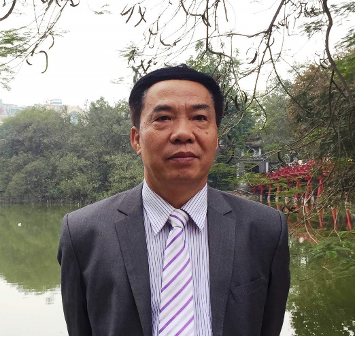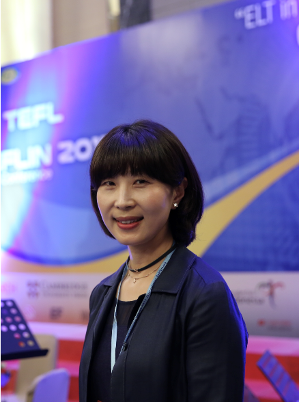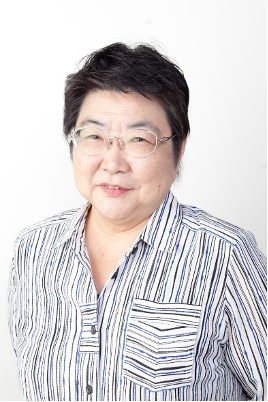JACET 60th Anniversary Commemoration Week
Plenary Speakers
We are pleased to announce the plenary speakers during the Commemoration Week. We look forward to seeing many of you!
JACET創立60周年記念ウィーク
基調講演者
第48回JACETサマーセミナー(オンライン、2021)とJACET第60回記念国際大会(オンライン、2021)の基調講演者についてお知らせいたします。多数の皆様のご参加をお待ちしております。
Plenary Speakers
Dr. Le Van Canh
(Vietnam National University, Hanoi)
Dr. Le Van Canh is Associate Professor in Applied Linguistics of Vietnam National University, Hanoi, where he lectures at the graduate level. He has been involved in English language teaching, English language teacher education and research for more than 40 years. Very recently, he co-edited two volumes, Situating Cultural and Moral Values in ELT Materials: The Southeast Asian Context (Springer), and Building Teacher Capacity in English Language Teaching in Vietnam: Research, Policy and Practice (Routledge).
The 48th JACET Summer Seminar (Online, 2021)
Plenary Talk on August 26th
INTEGRATING HUMAN VALUES IN ENGLISH LANGUAGE TEACHING
In the twenty-first century, English language teachers are tasked with the job of helping learners to develop not only their communicative repertoire but also themselves intellectually, morally and emotionally. These aims are becoming increasingly critical in the age of new materialism and posthumanism when the merger of biotech and infotech confronts humankind with unprecedented challenges. This lecture focuses on the three questions: (i) why is it necessary to integrate human values in English language instruction? (ii) what values can be integrated? and (iii) how can those values be integrated?
The JACET 60th Commemorative International Convention (Online, 2021)
Plenary Talk on August 27th
ELT IN THE UNCERTAIN FUTURE: RE-ENVISIONING THE GOAL OF OUR PROFESSION
English Language Teaching has long been influenced by the British (ELT) and North American (TESOL) traditions. As a result, teachers and scholars around the world have been informed by the monolingual construct of communicative competence, which promotes the native-speakers’ linguistic models in a relatively stable world. Now we are, in the second decade of the 21st century, witnessing unprecedented challenges such as climate change, pandemic, deterioration of respect for human diversity, and extremist nationalism. New technologies have also been changing the way we live, work and communicate verbally with one another. What else is coming? Nobody can tell. However, as educators we are obliged to prepare our students to cope successfully with that uncertainty because education is, after all, for the future. In this uncertain and charged world scene, we are obliged to reflect on the massive changes that are either already under way or on the horizon in an attempt to identify a possible anchor for our work.
In this talk, I will discuss the inadequacy of the conventional construct of communicative competence that is so deeply embedded in our professional practices. Then I will discuss the rationale for the need to move beyond ELT to prepare our students for the uncertain future. Finally, I will recommend how ELT pedagogies should be changed to avoid reinventing the western reductionist and essentialist conceptualization of language, language learning and language teaching.
*Updated on May 18, 2021
Dr. Jihyeon Jeon
(Ewha Woman’s University)
Dr. Jihyeon Jeon is a professor at Ewha Woman’s University, Seoul, Korea. She served as a president of Asia TEFL (2017-2020). Her recent publications appear in the TESOL Encyclopedia of ELT (2018); and in the Routledge International Handbook of Language Education Policy in Asia (2019). Her recent talks include teacher communication from interpersonal communication perspectives.
The 48th JACET Summer Seminar
Plenary Talk on August 26th
Teachers coping with challenges: A view from interpersonal communication theories
In this lecture, we will talk about the important aspects of communication between teachers and students for classes. At first, we will share some of the challenges that we faced or realized during the COVID-19 pandemic, suddenly being forced to conduct classes online. Then, we clarify our experience with the theory of interpersonal communication. When we communicate with people, we often feel uncertainty in situations or relationships. When we have uncertainty, we feel unpleasant, and consequently, we interact with people to seek information to reduce this uncertainty. Although we have decades worth of research on online teaching and learning, this involuntarily forced situation made teachers go through difficulties that they haven’t experienced before.
What have we experienced? What made us frustrated?
When we are communicating with students through Zoom, the following questions need to be considered:
1) What happens to our verbal/nonverbal communication?
2) What happens to our intimacy level/reciprocity with our students?
3) Are there ways to increase a positive experience in our zoom classes?
4) What are ways to reduce uncertainty so that we can have more satisfactory classes in a crisis?
A crisis can work as an opportunity, and so, in this difficult time, we may be able see more clearly about the communication between teachers and students from the perspective of interpersonal communication.
The JACET 60th Commemorative International Convention (Online, 2021)
Plenary Talk on August 27th
Road to resilience: For teachers facing challenges
For teaching English classes, we have focused on the understanding of education/English language, teaching methods, and student and class dynamics. During the period of the COVID19 Pandemic, however, many of us felt helpless and frustrated because of the challenges brought by the sudden and involuntary switch to online teaching. Why do teachers’ competencies and experiences that they have kept up to date not function properly under this new-normal situation? How do teachers find their way out?
One thing that we should understand is that the teacher is still human, and therefore there are moments when the teacher’s competence or experience cannot be properly exercised due to the teacher’s psychological state. The Covid19 period is opening up an opportunity for us to see the psychological shock and the process of overcoming this shock. Where does the power come from to allow frustrated teachers to do their best teaching in a changed situation?
In this presentation, we will focus on resilience, the power to overcome difficulties. We cannot discuss every single way we can prepare for diverse and unpredictable challenges that lie ahead. However, if teachers have a healthy psychological power and are capable of responding to challenges, we will be well prepared for the future. What is resilience, and what factors can reinforce it? Let’s discuss ways to increase teachers’ resilience.
Dr. Judy Noguchi
(Professor Emerita of Kobe Gakuin University)
Dr. Judy Noguchi, professor emerita of Kobe Gakuin University, has been involved in English for specific purposes (ESP), a genre-based approach to language study, from the start of her teaching career. B.S. and B.A. (chemistry), University of Hawaii; M.Ed. (TESL), Temple University (US); Ph.D. (applied linguistics), University of Birmingham (UK).
The 48th JACET Summer Seminar (Online, 2021)
Plenary Talk on August 26th
Not ‘Language’ learning but ‘language’ learning for Society 5.0
Mastering a Language is probably an “impossible” task as no one can ever know everything about a Language, such as English or Japanese or whatever other natural human language you can think of. However, acquiring the various genres and varieties of a language that we use daily is something that children do naturally and adults can manage when faced with the need to communicate in a tongue of which they are not a native speaker. This seminar will examine what is needed for “global” communication in a post-pandemic world where people now realize how truly interconnected human societies are with each other and also with our natural environment. To resolve the many issues facing us in an era of post-normal science, we need to be aware of the realities of linguistic relativity and find ways to successfully communicate via genres developed by specific communities of practice. In this seminar, we will examine how we can address the need for target language mastery at the professional level to transcend linguistic and cultural boundaries for effective global communication. The key to making this possible is a genre-approach to language as it is used for specific purposes.



